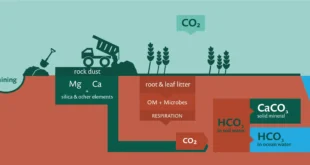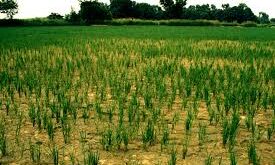- FSSAI registered over 30K cases against food adulterers violating the standards laid down under the FSS Act, 2006 and Regulations in 2021-22 last year.
- Spices, oil and other food items–Artificial colours in red chilli powder, blackberries in black pepper, cheap oil mixed with coconut oil, lead chromate adulteration in turmeric and cassia bark in cinnamon.
Food Safety and Standards Authority of India (FSSAI)
- It is an autonomous statutory body established under the Food Safety and Standards Act, 2006.
- The Ministry of Health & Family Welfare, Government of India is the administrative Ministry of FSSAI.
- The Chairperson is in the rank of Secretary to Government of India.
Headquarters: Delhi.
FSS Act, 2006 consolidates various acts & orders that had earlier handled food related issues in various Ministries and Departments, such as–
- Prevention of Food Adulteration Act, 1954
- Fruit Products Order, 1955
- Meat Food Products Order, 1973
- Vegetable Oil Products (Control) Order, 1947
- Edible Oils Packaging (Regulation) Order 1988
- Milk and Milk Products Order, 1992
FSSAI was established in 2008 and fully functional in 2011 after its Rules and key Regulations were notified.
- This marked a shift from a multi-level to a single line of control with focus on self-compliance rather than a pure regulatory regime.
- FSSAI has been mandated by the FSS Act, 2006 for performing the following functions:
- Framing of Regulations to lay down the Standards and guidelines in relation to articles of food and specifying appropriate systems of enforcing various standards thus notified.
- Laying down mechanisms and guidelines for accreditation of certification bodies engaged in certification of food safety management systems for food businesses.
- Laying down procedure and guidelines for accreditation of laboratories and notification of the accredited laboratories.
- To provide scientific advice and technical support to Central Government and State Governments in the matters of framing the policy and rules in areas which have a direct or indirect bearing of food safety and nutrition.
- Collect and collate data regarding food consumption, incidence and prevalence of biological risk, contaminants in food, residues of various contaminants in foods products, identification of emerging risks and introduction of rapid alert systems.
- Creating an information network across the country so that the public, consumers, Panchayats etc receive rapid, reliable and objective information about food safety and issues of concern.
- Provide training programmes for persons who are involved or intend to get involved in food businesses.
- Contribute to the development of international technical standards for food, sanitary and phyto-sanitary standards.
- Promote general awareness about food safety and food standards.
Initiatives of FSSAI:
Heart Attack Rewind – It is the first mass media campaign of FSSAI. It is aimed to support FSSAI’s target of eliminating trans fat in India by the year 2022.
FSSAI-CHIFSS – It is collaboration between FSSAI and CII-HUL Initiative on Food Safety Sciences to promote collaborations between Industry, Scientific Community, Academia for food safety.
State Food Safety Index (SFSI): The FSSAI developed the State Food Safety Index (SFSI) index to measure the performance of states on five significant parameters of Food Safety.
- The parameters include Human Resources and Institutional Data, Compliance, Food Testing – Infrastructure and Surveillance, Training & Capacity Building and Consumer Empowerment.
- The first State Food Safety Index for the year 2018-19 was announced on the first-ever World Food Safety Day on 7th June 2019.
Eat Right India Movement: It is an initiative of the Government of India and FSSAI to transform the country’s food system in order to ensure safe, healthy and sustainable food for all Indians..
Eat Right Station Certification: The certification is awarded by FSSAI to railway stations that set benchmarks (as per the Food Safety and Standards Act, 2006) in providing safe and wholesome food to passengers.
SOURCE: THE HINDU,THE ECONOMIC TIMES,MINT
 Chinmaya IAS Academy – Current Affairs Chinmaya IAS Academy – Current Affairs
Chinmaya IAS Academy – Current Affairs Chinmaya IAS Academy – Current Affairs



